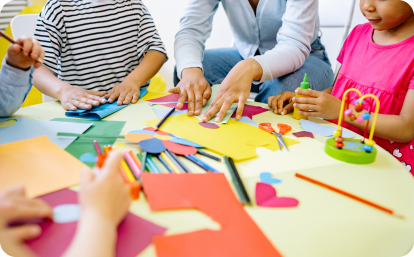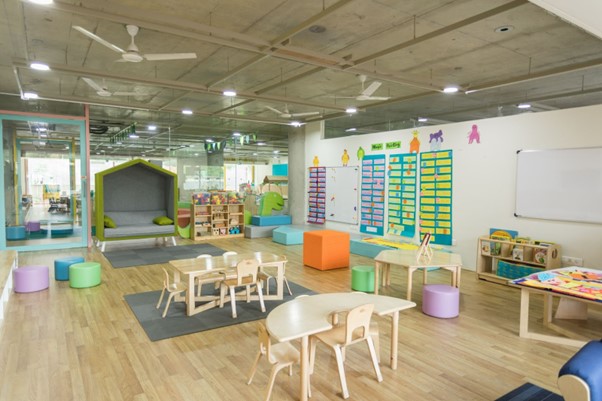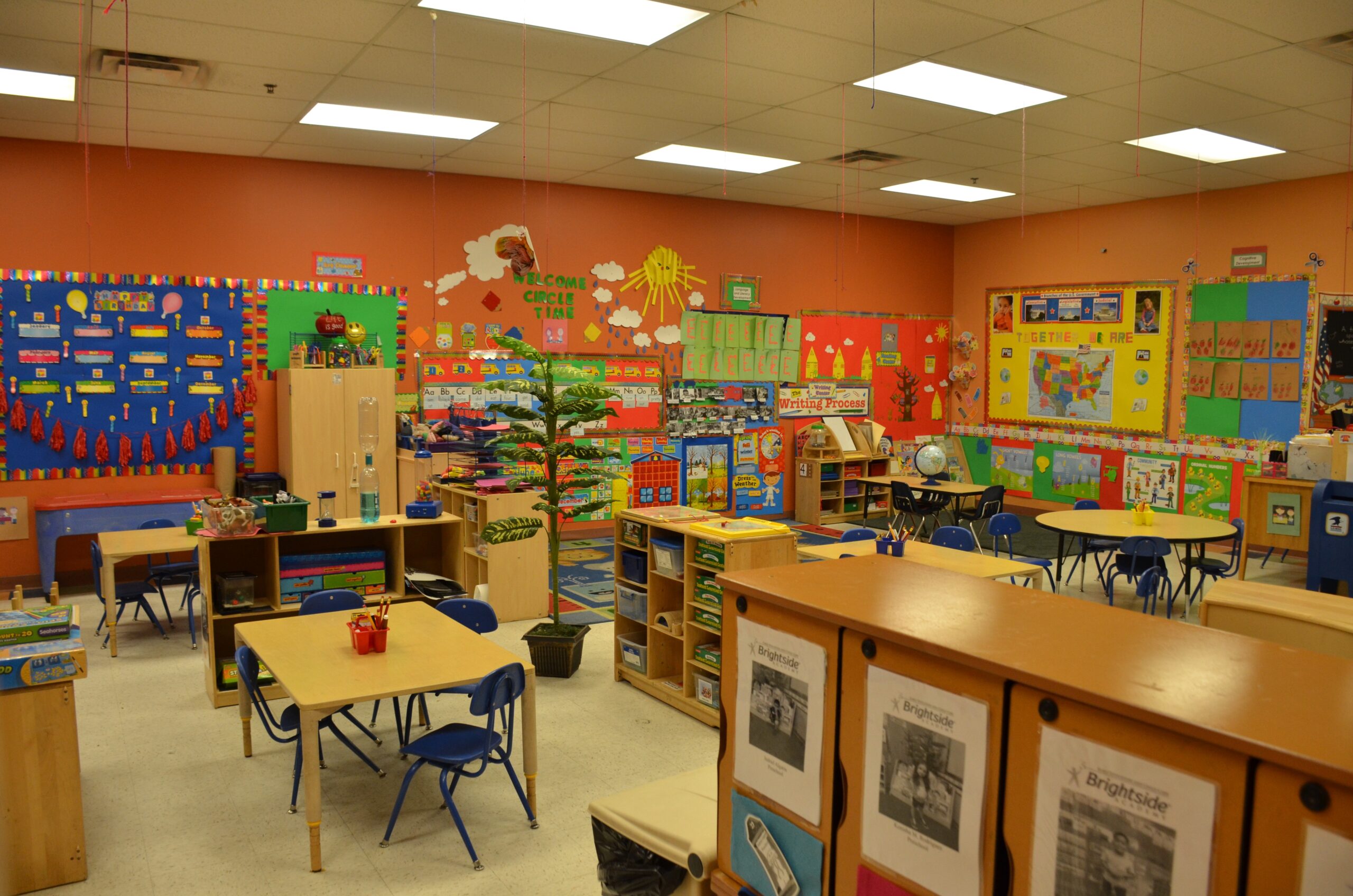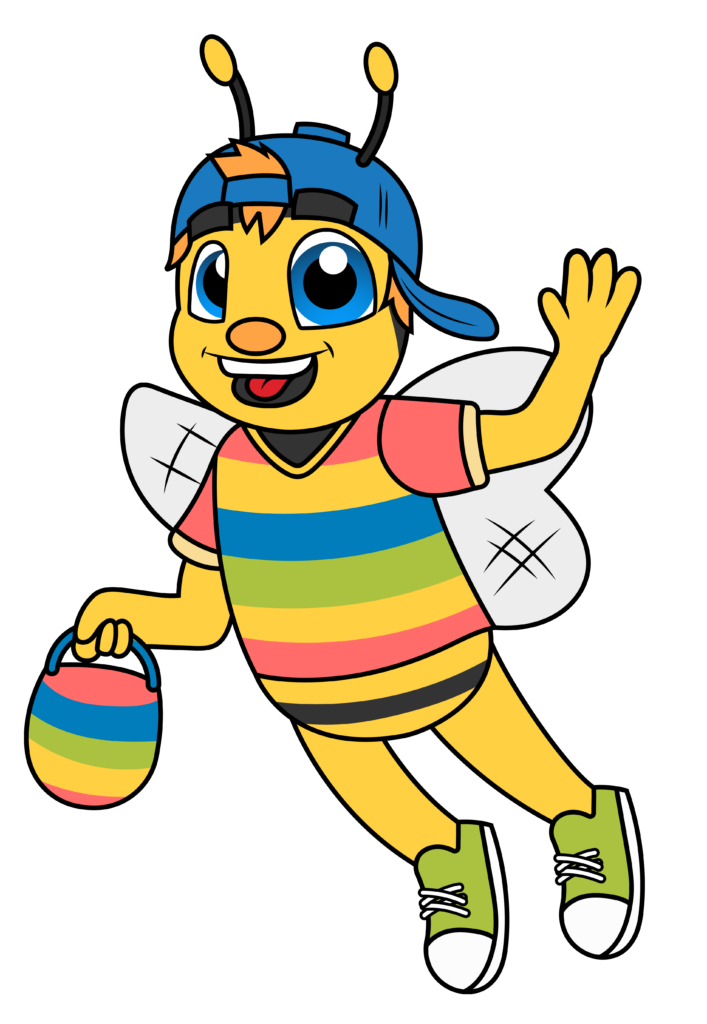Do you ever find yourself wondering when your little one will unlock the ‘number code’ and start counting? This question, ‘When Do Kids Learn to Count,’ often lingers in the minds of many parents as they watch their children grow.
Understanding the timeline of when children typically begin to grasp counting skills can provide valuable insights into their cognitive development.
Stay tuned to explore the fascinating journey of numerical awareness in young minds, and gain practical tips on how to support and nurture this fundamental skill that sets the stage for broader mathematical understanding.
When Do Kids Learn to Count?
When Do Kids Learn to Count: Starting with Infants
Understanding when kids learn to count helps in nurturing counting development in infants. When nurturing counting development in infants, engage in play activities that incorporate numbers to support their early mathematical understanding. Infants learn best through interactive experiences, so make counting a part of their daily routine.
Use colorful toys or blocks to count together, creating a fun and engaging environment. Sing counting songs or nursery rhymes that involve numbers to make the learning process enjoyable. Point out numbers in your surroundings, like on clocks or household items, to help infants start recognizing numerical symbols.
By integrating numbers into playtime, you lay a strong foundation for their mathematical skills. Remember to keep the activities simple and repetitive to reinforce the concepts effectively. Celebrate their efforts and progress to boost their confidence in counting.
Your involvement and enthusiasm play a crucial role in fostering their early mathematical development. Enjoy these moments of learning and discovery with your little one as they explore the world of numbers.
Number Recognition in Toddlers
As your child grows, you may start to wonder, when do kids learn to count with better recognition? Let’s explore number recognition in toddlers:
To help toddlers develop their number recognition skills effectively, engage them in interactive activities that incorporate numbers into their daily routines. Make counting a part of their everyday life by pointing out numbers on objects, like doors or toys. Encourage them to identify numbers on clocks or count the stairs as they climb. Utilize toys or games that involve counting, such as counting blocks or puzzles with numbers. Sing counting songs together to make learning fun and engaging. As toddlers start recognizing numbers, reinforce their understanding by praising their efforts. Keep activities light and enjoyable to maintain their interest and motivation.
Using number recognition games or apps can also enhance their learning experience. Apps like Speech Blubs offer interactive tools and quizzes tailored for toddlers to practice number recognition in a playful way. Remember, every child learns at their own pace, so be patient and supportive throughout this learning journey. By incorporating numbers into their daily activities and playtime, you can help toddlers build a solid foundation for their number recognition skills.

Matching Objects and Numbers
Engage toddlers in fun and educational activities that involve matching real objects with symbolic representations of numbers to enhance their understanding and development in counting skills. By linking tangible items like toys or snacks with corresponding numbers, you help children grasp the concept of quantity and numerical symbols. Encourage them to match a toy car with the number 3 or three cookies with the numeral ‘3.’ This hands-on approach bridges the gap between concrete objects and abstract numbers, laying a solid foundation for counting proficiency.
Through activities like counting blocks or stickers, toddlers learn to associate physical items with numerical values, strengthening their number sense. As they match objects to numbers, they develop essential skills like number recognition, counting sequence, and one-to-one correspondence. This interactive practice not only makes learning enjoyable but also boosts cognitive development by fostering a deeper understanding of numerical concepts. So, grab some everyday objects, introduce numbers, and watch your little one thrive in their counting abilities.
Progression of Counting Skills
As toddlers progress in their counting skills, they transition from matching objects with numbers to developing a deeper understanding of numerical concepts. Here’s what you can expect during this developmental stage:
- Increased Number Sense: Toddlers start grasping number sequences and sense, moving beyond just rote counting.
- Enhanced Symbolic Representation: They begin to recognize basic shapes and associate them with numbers, aiding in number recognition.
- Improved One-to-One Correspondence: Developing a better grasp of one-to-one correspondence, they can match objects accurately with numbers.
- Growing Number Recognition: Toddlers display improved familiarity with numbers and may start recognizing them in various contexts.

During this period, engaging your child with fun counting activities and incorporating numbers into daily routines can further support their counting skills development. Encouraging their natural curiosity and exploration of numbers will help lay a solid foundation for their mathematical understanding.
Importance of Early Math Exposure to Help Your Kids Learn to Count
Early exposure to mathematical concepts lays a crucial foundation for your child’s cognitive development and future academic success. Introducing counting and mathematical thinking from a young age can significantly benefit your child’s learning journey. By engaging in activities that involve numbers, shapes, and patterns, you’re setting the stage for strong math skills later on. Counting everyday objects, singing counting songs, and exploring math through play all contribute to building a solid mathematical understanding.
Starting early with math exposure not only helps your child grasp basic counting principles but also enhances their problem-solving abilities and logical thinking. As your child interacts with numbers and shapes in various contexts, they develop a deeper understanding of mathematical concepts. This early familiarity with math lays a sturdy groundwork for more complex math skills in the future. So, seize the opportunity to introduce your child to the world of numbers early on and watch as their math proficiency grows with each counting adventure.
Varied Counting Proficiency Levels
Introducing your child to the world of numbers early on can reveal a range of proficiency levels in counting skills among toddlers.
- Children show different levels of interest and proficiency in counting.
- Some counting skills may be more appealing to children than others.
- Exposure to counting and numbers is crucial for skill development.
- Children exhibit varied levels of counting proficiency during early development.
As your child explores counting, they may demonstrate unique strengths and areas for growth. Some may grasp numbers quickly, while others may take more time to understand the concept of counting. It’s normal for children to progress at their own pace, so celebrate their achievements no matter the speed.
Providing a supportive environment where counting is integrated into daily activities can help nurture their counting skills over time. Remember, each child is different, and their counting journey is a personal and evolving one.
Parental Role in Counting Skills
Parents play a crucial role in fostering their children’s counting skills through active engagement and support. Your involvement in introducing mathematical thinking early on can significantly impact your child’s development. Counting everyday objects together can be a fun way to kickstart their counting skills.
By incorporating learning counting songs into your routine, you can enhance their understanding and engagement with numbers. Early exposure to counting lays a strong foundation for more complex mathematical concepts later on. Remember, children’s understanding of numbers improves notably between ages two and four, making this a critical time for their mathematical growth.
Your role in encouraging exposure to numbers and fostering your child’s counting skills is pivotal in their learning journey. So, keep counting, singing, and exploring numbers together to set them up for success in their mathematical endeavors.
Developmental Milestones in Counting
As your child progresses in their counting skills, reaching developmental milestones becomes a significant marker of their mathematical growth.
- Most toddlers can count to 10 by age 2 through rote counting.
- Children start understanding counting concepts between 2-4 years old.
- One-to-one correspondence is a key skill in understanding numbers.
- Children may not understand the concept behind numbers when rote counting.
These milestones signify your child’s evolving grasp of numbers and their ability to connect numerical symbols with quantities. By observing these achievements, you can track their mathematical development and provide appropriate support and encouragement.
Educational Tools for Counting
Educational tools for counting can greatly enhance your child’s mathematical learning experience. Consider using Speech Blubs, an app that offers personalized learning plans and interactive games like ‘Awesome Numbers’ and ‘Numbers and Me’. These activities not only teach counting but also aid in speech therapy and vocabulary building for toddlers. By engaging with Speech Blubs, your child can learn numbers and linguistic skills simultaneously, thanks to its innovative approach.
The app’s regular updates ensure that the content stays fresh and engaging, keeping your child excited about learning. Through interactive math games like coin counting and magnetic fishing games, your child can practice counting, sorting, and hand-eye coordination in a fun and educational way. Additionally, activities such as drawing numbers, tracing, sorting, and counting with Legos provide hours of learning and entertainment. By actively participating in these tools and games, you can enhance your child’s learning experience and support their mathematical development effectively.
Interactive Math Games for Learning
Interactive math games provide a dynamic and engaging approach to learning essential mathematical concepts and skills for children.
- Coin Counting Game: Practice counting and sorting while engaging in a fun coin counting game.
- Magnetic Fishing Games: Enhance counting skills and hand-eye coordination through interactive magnetic fishing games.
- Singing Number Songs: Make learning enjoyable by singing number songs that aid in enhancing numeracy skills.
- Nature Walk Counting: Incorporate counting into outdoor activities like nature walks for a practical math experience.
These interactive math games not only make learning enjoyable but also help children develop a strong foundation in mathematics. Through these engaging activities, children can enhance their numeracy skills, improve hand-eye coordination, and foster a love for learning math.
Understanding When Kids Learn to Count
As we explore the key developmental milestones of early numeracy, including when kids learn to count, it’s crucial to provide them with the right environment and support to nurture these skills effectively. At Clever Bee Academy in Northern Ohio, we are committed to fostering young minds with a curriculum designed to unlock their full potential from infancy through to twelve years old.
Our early childhood education programs are crafted to guide your children as they journey through the wonders of learning numbers and beyond, preparing them not just for school, but for a lifetime of curiosity and success. With the Clever Bee Academy Experience, you can be confident that your child is in a nurturing environment that celebrates and enhances their innate desire to learn.
Curious to see how we can help your little one blossom into a bright and capable learner? Visit us at Clever Bee Academy to learn more about our world-class child care and educational programs. Help your child to ‘Bee’ the best they can ‘Bee’ with us!
FAQs About When Do Kids Learn to Count
How Can Parents Incorporate Counting Skills Into Everyday Routines to Support Their Child’s Development?
Incorporate counting skills into everyday routines by pointing out numbers in the environment, counting toys during playtime, and singing counting songs together. These fun activities boost your child’s development and make learning enjoyable.
What Are Some Creative Ways to Make Learning to Count Engaging and Fun for Young Children?
To make learning to count engaging and fun for young children, try using interactive math games, such as coin counting or magnetic fishing. Sing number songs, engage in nature walks for practical math, and involve parents for a richer learning experience.
Are There Any Red Flags or Signs That Indicate a Child May Be Struggling With Counting Skills?
If counting feels tricky or frustrating for your child, keep an eye out for signs like difficulty sequencing numbers or understanding quantities. Celebrate progress, provide support, and make learning fun!
How Can Parents Determine if Their Child Is Ready to Move on to More Advanced Counting Concepts?
To determine readiness for advanced counting concepts, observe if your child can count out of order, match objects with symbols, and grasp basic number concepts. Encourage learning through fun activities and seek progress in their counting skills.
What Are Some Strategies for Helping Children Who Are Struggling With Counting to Improve Their Skills in a Supportive and Positive Way?
To help your child improve counting skills in a supportive way, engage in fun counting games and activities. Use everyday objects for practice, sing counting songs, and offer positive reinforcement. Encourage learning through play and exploration.








